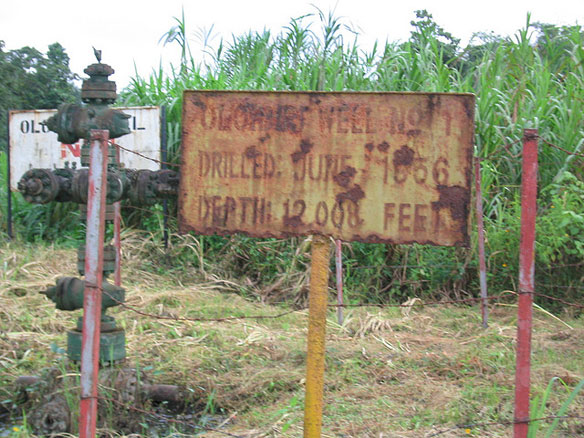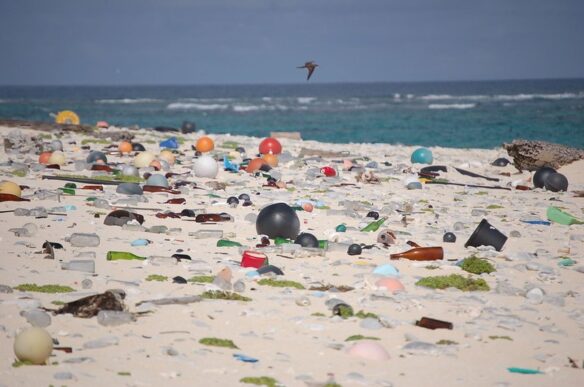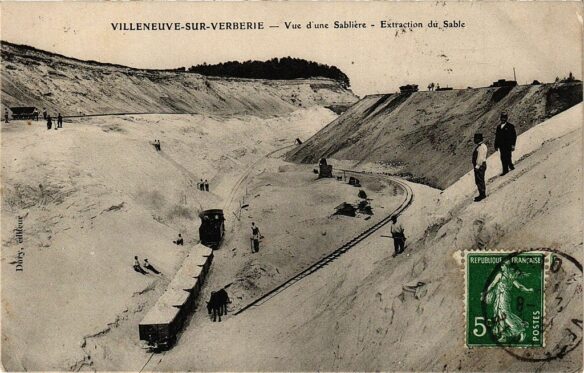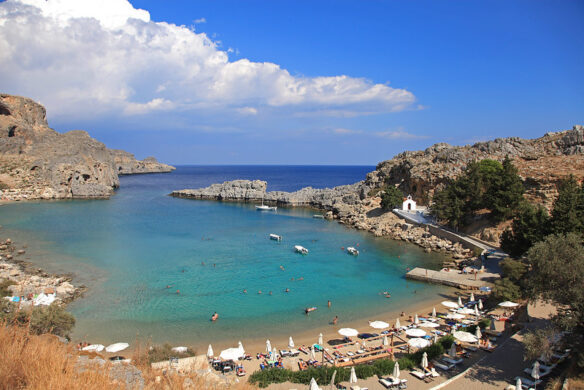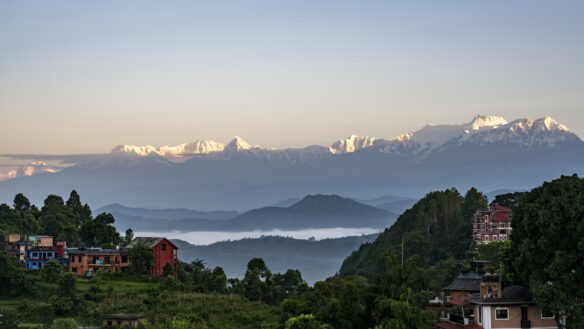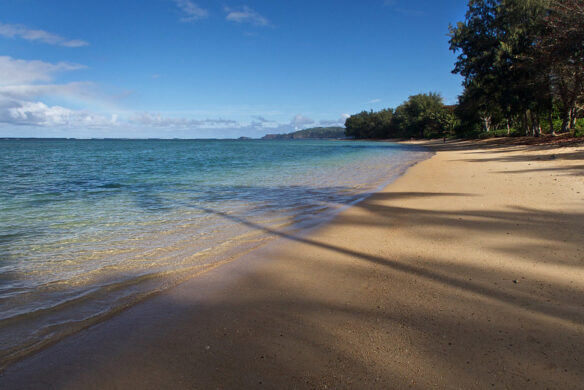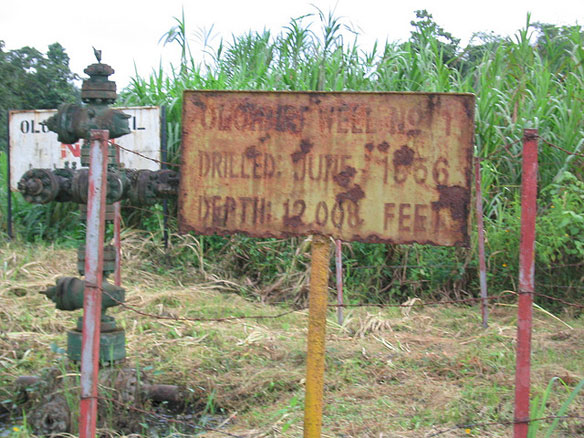
The first oil well in Oloibiri, drilled by Shell in 1956. Oloibiri is located in Bayelsa State, in the eastern Niger Delta region of Nigeria. Photo source: ©© Rhys
Excerpts;
The global media have had little to say on Nigeria’s latest oil spill and the hundreds of others that have destroyed so many lives…
In any other region of the world the behaviour of the companies involved would result in major sanctions and criminal prosecutions. Hundreds of square miles of sensitive coastal wetlands have been poisoned, perhaps forever. Fishing areas have been turned into toxic waste zones. Village life has been grotesquely refashioned as a result of flaring gas fumes and pipelines that sometimes run through people’s homes. Disease, birth-defects and chronic illnesses are all part and parcel of an unregulated industry that operates outside the range of global media but with the full complicity of the Nigerian government that wants nothing whatsoever to upset its unctuous cash-cow…
Read Full Article, Guardian UK
Shell Nigeria’s Bonga, EA fields resume production, Reuters
A Coastal devastation We Do Not Hear About
Cleaning up Nigerian oil pollution could take 30 years, cost billions; UNEP
The environmental restoration of Nigeria’s Ogoniland oil region could prove to be the world’s most wide-ranging and long-term oil clean-up exercise ever, if contaminated drinking water, land, creeks and other ecosystems are to be brought back to full health, according to a United Nations report released today.
Why Shell Will Continue Oil Spills in the Country, All’Africa (01-12-2012)
Oil spills in the Niger Delta have become so common that entire ecosystems are wiped away, eliminating the major source of livelihood of fishermen living on the coastland and forcing many residents to find alternative sources of livelihoods.The recent such disaster inflicted on the country by Royal Dutch Shell is the offshore oil spill on its Bonga oil facility which is reported to have spilled over 30,000 barrels of crude oil on the water body and has a capacity of two million barrels of oil holding capacity, a disaster the company is easily walking away from as usual.The company cleverly declares the spill as a force majeure thereby freeing itself of any obligation such as fine that may be imposed on it and, so far, there has been no investigation by the Nigerian government through its National Oil Spill Detection and Response Agency (NOSDRA) to find out if the company’s claim of a force majeure is tenable.

